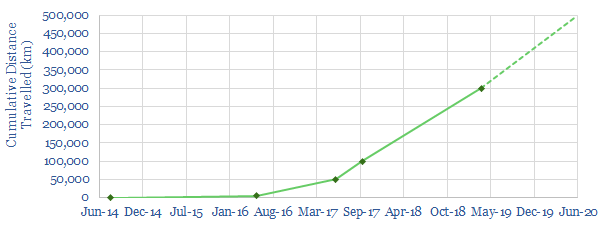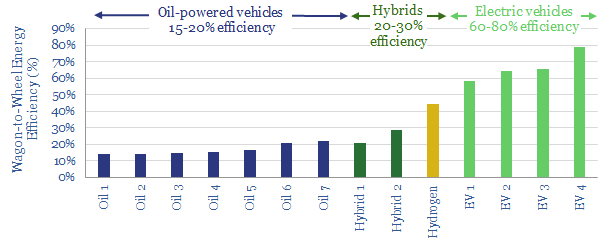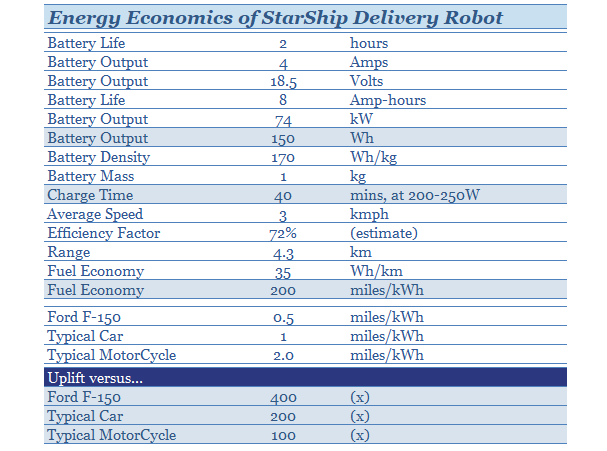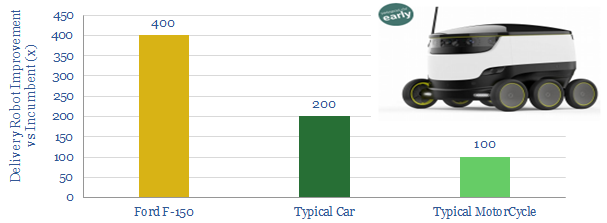Stand on a street corner in Tallinn, in the summer of 2019, and you might encounter the scene below: not one, but two autonomous delivery robots, comfortably passing one-another.
The fuel economy of these small electric machines is truly transformational, around 100x better than a typical motorcycle (the trusty workhorse of take-aways past), around 200x better than a typical car and around 400x better than a typical pick-up.
Large implications follow for energy supply and demand, if such delivery-robots take off…

[restrict]
Starship is the company commercialising the robots above, backed by the co-founders of Skype, lightly aiming to “revolutionise food and package deliveries, offering people convenient new services that improve everyday life… instant delivery works around your schedule at much lower costs”.
Over 50,000 deliveries have been completed by April-2019, including trials in California, Tallinn, George Mason University, and Milton Keynes. Based on the chart below, we estimate the fleet is traversing c400km/day. In some locations, the costs are as low as c$2/delivery, with an ambition of reaching $1/delivery as the technology scales.

What does it mean for energy demand? Take a Ford F-150 which achieves 17mpg. You can achieve a 4x fuel-economy uplift by electrifying it. Another 2.5x uplift comes from lowering the mass to 30kg. Another c40x net uplift comes from decreasing the average speed of travel to 3-5kmph. These numbers can be calculated, approximately, from the physics, in our data-file of fuel economies by vehicle type.

Direct energy economics are calculated below, based on the battery disclosures for one of Starship’s robots. A single delivery robot is implied to achieve an unheard-of c200miles/kWh. Matching the maths above, this is indeed 100-400x better than alternative transportation technologies which we have profiled.

Creation or destruction? The numbers above augur poorly for long-run demand of liquid transportation fuels. In cost terms, it is very difficult to compete with these vehicles’ incredible efficiency. What is unclear is whether such delivery vehicles destroy old demand, or create new demand, per “Jevons Paradox” that more efficient energy technology has historically increased energy demand.
[/restrict]
Our conclusion is to have found further evidence that transportation technology is evolving. Forward thinking energy companies will be preparing for the change, as evidenced by their patents, their projects and their venturing.
